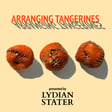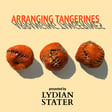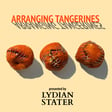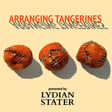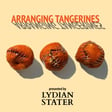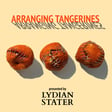
Arranging Tangerines Episode 40 - A Conversation with Mike Varley
In our most recent installment, Mike Varley (one half of the artistic duo Highley Varlet) has (half of) us over to his very official podcast studio (in his apartment) to discuss his and their artistic endeavors including the “2020: Total Clarity” project where they walked a marathon a day, five days a week, for a full calendar year, the people they met, the podcast episodes they produced, the bagels they ate, the weed bags they picked up, the subsequent NFT collections they produced and how this all helped him to broaden his understanding of New York City, create community, and think about the definition of the word “artist.”
Mike Varley has recently returned to the craft of 'About-Me' writing after a number of years that will henceforth be known as "About-less."
He's become aware through querying his senses that writing a bio two days before the end of a calendar year will garishly color the contents to the tune of Auld Lang Syne. Nevertheless, he has opened a Cherry Coke for the occasion despite the fact it is neither the time of day nor the will of God.
18 months ago, Mike walked seven thousand and twenty four miles around the 5 boroughs of New York City - roughly four thousand, two hundred and sixteen of those with his now wife Jessi Highet. He has spent most days since reliving the experience via digital documentation, a testament to his dedication to never settle on an evident trajectory.
Recently he's learned that the act of entertaining, scheduling, performing, and supplementing radio, newsprint and television interviews is a surprisingly time consuming task but worth the effort if you get to meet Al Roker.
Please don't bite Mike Varley, he has no patience for doctors.
If you must know, Mike Varley has made feature films, novellas, music videos, Halloween masks, electrical cord paintings, Triple-A video games, podcasts, audio books, and, this one time, a tiny hut made out of no more than 20 cotton swabs.
He is pleased to have kept this brief.
Podcast Bonus Special: If you’d like to receive a free promo NFT from Highley Varlets “Weed Bags of New York” project, email us at info@lydianstater.co, with your Ethereum wallet address and we will send you one.
Links
Highley Varlet on The Today Show
